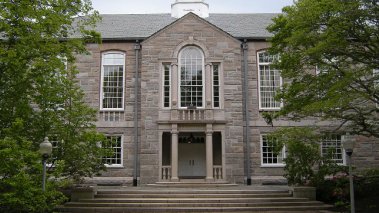Table of Contents
Speech Code of the Month: University of Rhode Island

FIRE announces its Speech Code of the Month for December 2016: the University of Rhode Island.
The University of Rhode Island (URI) prohibits “bias-based incidents.” According to the policy:
A bias-based incident is one which has a negative effect on an individual or group and which is based on or motivated by bias against race, sex, religion, age, color, creed, national origin, disability, sexual orientation, gender identity or expression, or disabled and/or Vietnam era veteran status.
Incidents of bias-based behavior “will be considered University Student Conduct System violations.”
This provision includes a swath of protected speech so wide you could drive a truck through it. Anything that insults or offends another person has, by definition, a “negative effect” on that person, and yet the First Amendment protects most such speech. As the U.S. Supreme Court held in Texas v. Johnson (1989), “If there is a bedrock principle underlying the First Amendment, it is that the government may not prohibit the expression of an idea simply because society finds the idea itself offensive or disagreeable.” Yet by the plain language of URI’s policy, the expression of an idea can be punished at URI simply because it has a negative effect—however minor and/or unreasonable—on another person.
Some schools publish logs of the types of bias incidents reported by their students. Unlike URI, not all of these schools make bias incidents a punishable offense—but the nature of the incidents reported make clear the direct threat that URI’s policy poses to speech about political and social issues.
At Clark University, for example, “A student reported concerns about a social media posting by another student that attempted to satirize the political atmosphere in the United States. This post triggered the reporting student to feel targeted.” Another Clark student “reported a negative interaction with a staff member regarding cultural and racial assumptions, which triggered the student to feel stereotyped and further marginalized.”
At the University of Northern Colorado (UNC), two professors were investigated by the university’s bias response team simply for discussing controversial social and political issues in class. In response to the ensuing controversy, UNC’s president announced plans to shutter the university’s bias response team.
At Washington University in St. Louis, one recent bias incident report “was submitted by a student about a professor in the College of Arts & Sciences regarding a perceived discriminatory comment and microaggression on the basis of nationality.” Another report “was submitted by an undergraduate student in an unidentified school about another student regarding a perceived inappropriate comment and microaggression on the basis of religion.”
As these examples illustrate, bias incident reporting systems are frequently used to file complaints about speech on political and social issues. At URI, this means students can be investigated and possibly even punished for speech that is at the core of what the First Amendment protects. As a public university, however, URI is legally bound to uphold its students’ First Amendment rights. The university knows this; in the very same Student Handbook that bans bias-based incidents, a section on “Students’ Rights” provides that “[s]tudents have the right to freedom of expression, freedom of association, freedom of inquiry and peaceful assembly.”
URI’s broad ban on “bias-based incidents” is inconsistent with students’ right to free speech and must be revised immediately. For this reason, it is our December 2016 Speech Code of the Month.
If you believe that your college’s or university’s policy should be a Speech Code of the Month, please email speechcodes@thefire.org with a link to the policy and a brief description of why you think attention should be drawn to this code. If you are a current college student or faculty member interested in free speech, consider joining the FIRE Student Network, a coalition of college faculty members and students dedicated to advancing individual liberties on their campuses.
Recent Articles
FIRE’s award-winning Newsdesk covers the free speech news you need to stay informed.

BREAKING: New Title IX regulations undermine campus free speech and due process rights


Stanford president and provost cheer free expression in open letter to incoming class
